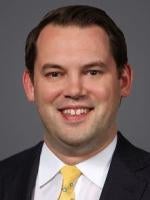A long time ago in a galaxy far, far away … or, more precisely, last month in the Texas Capitol in Austin, Governor Greg Abbott signed into law House Bill (HB) No. 2127, the Texas Regulatory Consistency Act—a measure that his opponents have dubbed the “Death Star” law. The law will go into effect on September 1, 2023.
Quick Hits
-
Effective September 1, 2023, Texas’s HB 2127 preempts some city and county workplace safety and health laws, but employers are still subject to state and federal OSHA requirements.
-
HB 2127 preempts county and city ordinances and regulations that are more stringent than state or federal enactments.
-
OSHA is currently conducting a three-year national emphasis program on heat-related hazards.
Essentially, HB 2127 strips local governments of the ability to pass or maintain laws more stringent than state (or federal) laws. Though HB 2127 covers all manner of restrictions—from facemasks and business operations during the next pandemic to restrictions on the sales of firearms—the measure has been singularly cast in many media accounts as prohibiting water breaks for construction employees, despite the fact that it doesn’t even mention water breaks.
The cities of Austin and Dallas have ordinances that require employers to provide construction employees with ten-minute water breaks every four hours. (That this might coincide with normal, scheduled lunch breaks and end of shift times is not mentioned in media reports.) As the requirements for these water breaks are not called for under either state or federal law, HB 2127 prevents the ordinances from being enforced. Critically, however, HB 2127 does not alter employers’ responsibilities and obligations to comply with the federal Occupational Safety and Health (OSH) Act’s General Duty Clause. More on that later.
It is important not to misunderstand HB 2127 or its effects. Let’s start with what the bill does not do: It does not prohibit an employer from providing water breaks, shade, or rest to employees in indoor or outdoor settings to prevent heat illness, as needed. That means an employer is free to provide breaks to employees however often is necessary or desired. The bill also does not prohibit compliance with Occupational Safety and Health Administration (OSHA) regulations related to heat illness and injury prevention.
Now let’s talk about what the new law may do: HB 2127 is intended to streamline the laws with which employers must comply, both with regard to breaks and things such as paid sick leave, as well as other employment benefits that some cities have tried to establish via ordinance. HB 2127 has the potential to help businesses, especially those without robust human resources or legal departments, by removing local governments’ ability to enact laws more strict than what the state has established via statute and regulation. It effectively nullifies the panoply of city-specific ordinances impacting the employment relationship, including those requiring water breaks at certain intervals. When one actually looks at some of the local ordinances, their overall effectiveness is questionable at best.
Take, for example, the 2010 Austin ordinance mandating water breaks every four hours for construction workers. During the long hot season in Texas, that standard is arguably nowhere near the frequency that employers should be requiring breaks for their workers. Complicating the issue further, other cities have different laws with different requirements.
Businesses are still required to follow OSHA’s guidance for preventing heat illness. OSHA announced a national emphasis program, titled, “Outdoor and Indoor Heat-Related Hazards,” in April 2022. The NEP is in effect for three years. This means OSHA can and will focus on this hazard and conduct inspections of employers’ worksites.
While federal OSHA does not have a specific standard addressing heat illness, as some states (e.g., California, Minnesota, Oregon, and Washington,) do, OSHA has created expectations of employers with employees working in heat via the NEP. The NEP will be enforced through the Section 5(a)(1) General Duty Clause. While OSHA does not mandate a certain number of breaks for employees, it does recommend employers take several steps for their workers to prevent heat illness and injuries. For example OSHA provides some guidance on protecting employees from heat stress:
-
“Establish a complete heat illness prevention program.”
-
“Provide training about the hazards leading to heat stress and how to prevent them.”
-
“Provide a lot of cool water to workers close to the work area. At least one pint of water per hour is needed.”
-
“Modify work schedules and arrange frequent rest periods with water breaks in shaded or air-conditioned areas.”
-
“Gradually increase workloads and allow more frequent breaks for workers new to the heat or those that have been away from work to adapt to working in the heat (acclimatization).”
-
“Designate a responsible person to monitor conditions and protect workers who are at risk of heat stress.”
-
“Consider protective clothing that provides cooling.”
In guidance released in June 2023 via the “Hurricane eMatrix,” OSHA offered a number of suggestions related to heat illness and injury prevention, such as acclimatizing response and recovery workers to hot and humid environments, scheduling heavy work for cooler periods of the work shift, and providing temperature-controlled cabs for equipment operators.
OSHA provides other guidance and recommendations, including how to measure heat in a workplace. Employers must continue to provide their employees with adequate breaks, water, shade, and other relief from the heat.
While the opponents of HB 2127 have dubbed it the “Death Star,” the OSH Act is the force guiding employers’ operations, whether in Texas or elsewhere. Employers complying with state and federal OSHA guidance may continue giving workers breaks as needed and follow the additional guidance and instruction those agencies provide relative to the prevention of heat illness. As Han Solo said, “[You] [n]ever seem to have a Death Star lying around when you need one.”




 />i
/>i

